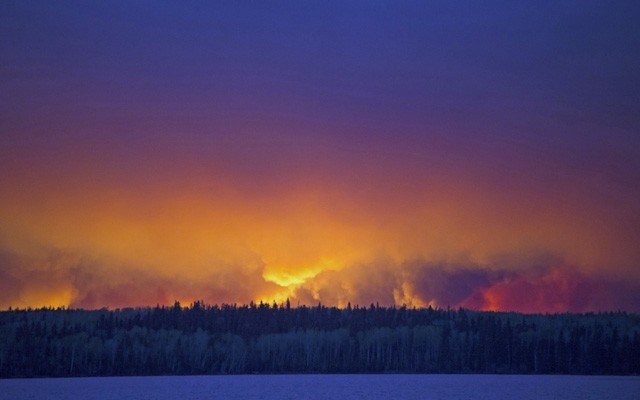After a record year for insurance damage, the Insurance Bureau of Canada (IBC) is urging governments across the country to do more to fight climate change.
According to Catastrophe Indices and Quantification, insurance damage topped $4.9 billion in 2016, breaking the previous one-year record of $3.2 billion in 2013.
"It's absolutely concerning, because we're seeing extreme weather, and particularly floods, happening more and more often and with increasing severity as a result of climate change," said IBC spokesperson Aaron Sutherland.
"The message we're trying to spread is that climate change isn't just some sort of future peril, it is a clear and present danger that we are seeing the effect of each and every day in this country."
The biggest disaster of 2016 was the Fort McMurray wildfire in May, which resulted in about $3.7 billion in insured damage — more than double the previous costliest natural disaster on record.
"We've been fairly lucky here in B.C. as well as in Whistler that we haven't seen a major event like that (recently)," Sutherland said.
"But you don't have to go too far back; (in 2015) we can recall the storms that hit Greater Vancouver and then just a few years before that the storms that really walloped Greater Vancouver and took out a large portion of Stanley Park.
"We shouldn't be lulled into a false sense of confidence that we don't have these risks here. We very much do, whether it comes from flooding or from wildfire, particularly in Whistler."
Whistler has taken great steps to try to mitigate the risk of wildfire, including hiring its own FireSmart coordinator, "which is a fantastic development, and something we're really eager in the insurance industry to see spread throughout the province," Sutherland said.
"The steps Whistler is taking through that position are really encouraging."
Whistler's FireSmart coordinator, Scott Rogers, started last October and has been working mostly with local stratas to assess their properties, said Whistler Fire Rescue Service chief Geoff Playfair, adding that about 15 assessment have been done so far.
Rogers has also been doing community outreach, Playfair said.
"He's been working to set up some programs in the high school, working with other community groups, (and) working with the province to try and understand how we can work on Crown lands in our community (to remove fuels)," he added.
Having a dedicated FireSmart coordinator on staff adds "huge value," Playfair said, but the community has a long way to go to mitigate wildfire risk.
"The FireSmart piece of it is a large part of that, so too are the fuel management programs that are ongoing," he said.
Property owners can book a free FireSmart assessment by calling 604-966-4173 or emailing srogers@whistler.ca.
More info on FireSmart can be found at www.whistler.ca/fire/firesmart.
According to the IBC, a multi-faceted approach is needed to properly address the issue of climate change.
"When it comes to flood risk, we want to see a national flood program in this country like we've got in many other nations around the world, and that includes better risk identification, and increased investment in risk reduction and things of that nature," Sutherland said.
"We're undertaking as much research as we can into the ways that we can better protect ourselves. As insurers, there's only so much we can do. We're there to help respond after disaster, but the best preparation we can have is ensuring that disaster never happens in the first place."




